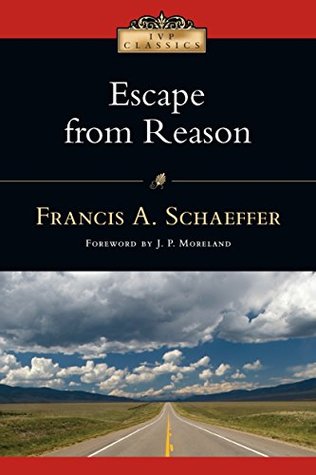More on this book
Community
Kindle Notes & Highlights
Read between
June 10 - June 16, 2018
They long for freedom even if the freedom makes no sense, and thus autonomous freedom and the autonomous machine stand facing each other.
What is autonomous freedom? It means a freedom in which the individual is the center of the universe. Autonomous freedom is a freedom that is without restraint.
He understood the direction that things would have to take when man is included in the machinery. The conclusions he drew were these: if man is determined, then what is, is right. If all of life is only mechanism—if that is all there is—then morals really do not count. Morals become only a word for a sociological frame-work. Morals become a means of manipulation by society in the midst of the machine. The word “morals” by this time is only a semantic connotation word for non-morals. What is, is right.
We are watching our culture put into effect the fact that, when you tell men long enough that they are machines, it soon begins to show in their actions. You see it in our whole culture—in the theater of cruelty, in the violence in the streets, in the murders on the moors, in the death of man in art and life. These things, and many more like them, come quite naturally from the historical and philosophic flow which we are tracing.
Man will keep his rationalism and his rebellion, his insistence on total autonomy or partially autonomous areas, even if it means he must give up his rationality.
What makes man a modern man is the existence of this dichotomy and not the manifold things he places, as a leap, in the upper story. No matter what expression he places there, secular or religious, it still amounts to the same thing if it is rooted in this dichotomy. It is this that separates modern man from, on the one hand, Renaissance man, who had hope of a humanistic unity; and, on the other hand, from Reformation man, who actually possessed a rational unity above and below the line on the basis of the content of the biblical revelation.
It is faith in faith, whether expressed in secular or religious terms. The leap is the thing and not the terms in which the leap is expressed. The verbalization, i.e., the symbol systems, can change; whether the systems are religious or non-religious; whether they use one word or another is incidental. Modern man is committed to finding his answer upstairs, by a leap, away from rationality and away from reason.
We are showing that we are faced with an almost monolithic concept today, of dichotomy and leap, and that once the leap is accepted, it really makes no difference what you place upstairs, or in what terms or even symbol systems the upstairs is expressed.
The first consequence of putting Christianity in an upper story concerns morality. The question arises as to how we can establish a relationship from an upstairs Christianity down into the area of morals in daily life. The simple answer is that you cannot.
The second consequence of this separation is that you have no adequate basis for law. The whole Reformation system of law was built on the fact that God had revealed something real down into the common things of life.
Another consequence is that this throws away the answer to the problem of evil.
Once the historic Christian answer is put away, all we can do is to leap upstairs and say that against all reason God is good.
In this setting the Bible sets forth its own statement of what the Bible itself is. It presents itself as God’s communication of propositional truth, written in verbalized form, to those who are made in God’s image.
The first is that there are certain unchangeable facts which are true. These have no relationship to the shifting tides. They make the Christian system what it is, and if they are altered, Christianity becomes something else. This must be emphasized because there are evangelical Christians today who, in all sincerity, are concerned with their lack of communication, but in order to bridge the gap they are tending to change what must remain unchangeable. If we do this we are no longer communicating Christianity, and what we have left is no different from the surrounding consensus.


